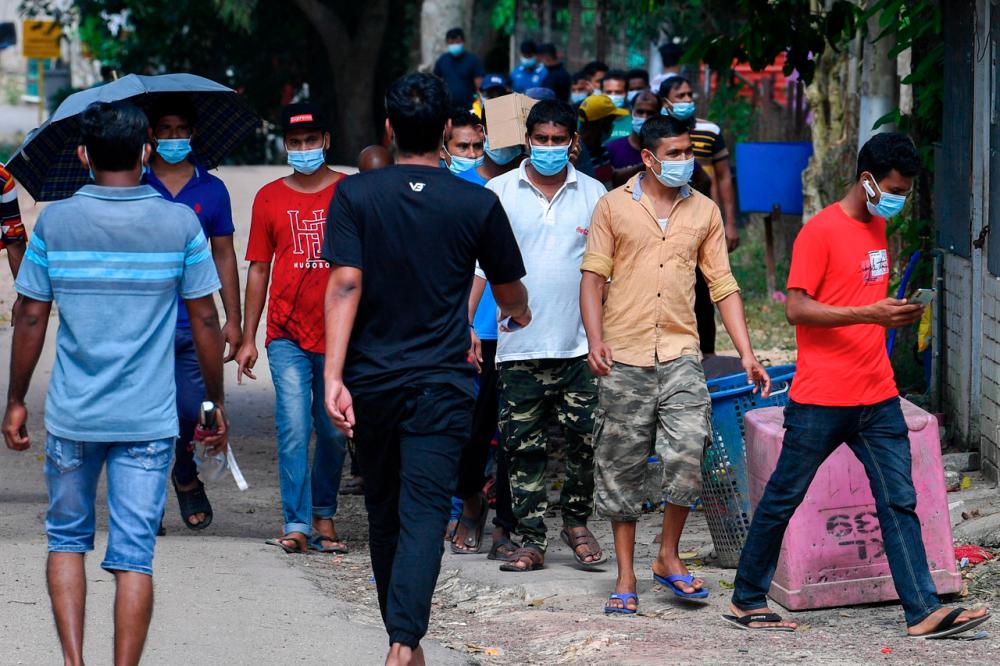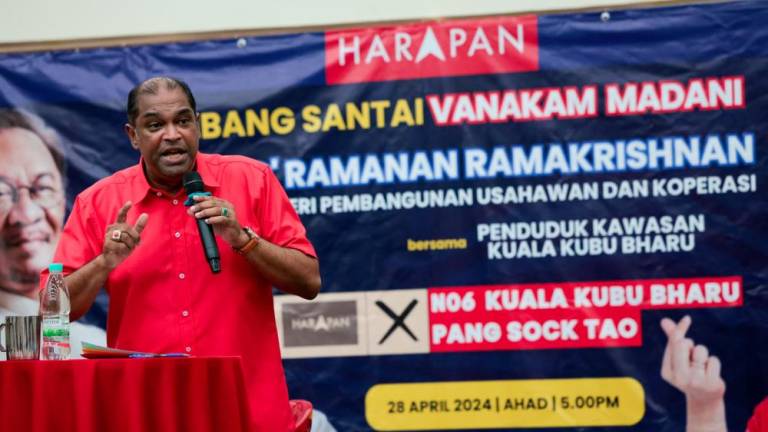MELAKA, Feb 23: A total of 1,161 employers in Melaka hiring foreign workers have not conducted COVID-19 screening on 14,016 of these workers within the period from Feb 1 until yesterday.
Melaka Manpower Department (JTK) director, Rosli Jantan said these employers had been contacted via email but had yet to respond on the screening matter.
“The department had contacted 2,208 employers registered under the Social Security Organisation (Socso) but only 1,047 of them gave feedback and conducted screening for their foreign workers within that period.
“So far, only 27,496 foreign workers have undergone screening and we urge the employers who have not done it for their foreign workers to do so immediately to avoid action against them,“ he told reporters after an integrated operation conducted by the
Construction Industry Development Board (CIDB) at a construction site in Kota Syah Bandar, here, today.
He said the list of employers who have not conducted the COVID-19 screening would be submitted to the Melaka State Health Department for further action under the Prevention and Control of Infectious Diseases Act 1988 (Act 342).
Meanwhile, 108 employers have been detected to not adhering to the Workers Minimum Standards of Housing and Amenities Act 1990 (Act 446) within the same period.
Rosli said this involved 533 foreign workers’ accommodations out of the total of 784 inspected around the state within the same period which covered 135 employers with a total of 8,380 workers including 305 locals.
This was to ensure adherence to Act 446 in curbing the spread of COVID-19, especially involving foreign workers in the construction and manufacturing sectors.
Earlier, Rosli said in the operation conducted at a 36-storey condominium construction site, the employer was found to have committed a number of offences under Act 446, including placing 399 foreign workers comprising Indonesians and Bangladeshis in
104 modified cabins as hostels.
“Based on the measurements and specifications set by JTK, the maximum number of workers to a cabin is four but some of the cabins each accommodated six workers, causing congestion.
”The employer also failed to provide mattresses for the comfort of its workers and there was poor circulation of air while the surrounding areas were dirty,” he added.- Bernama










